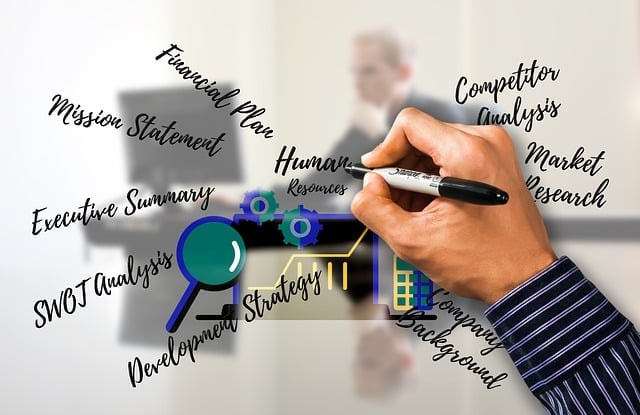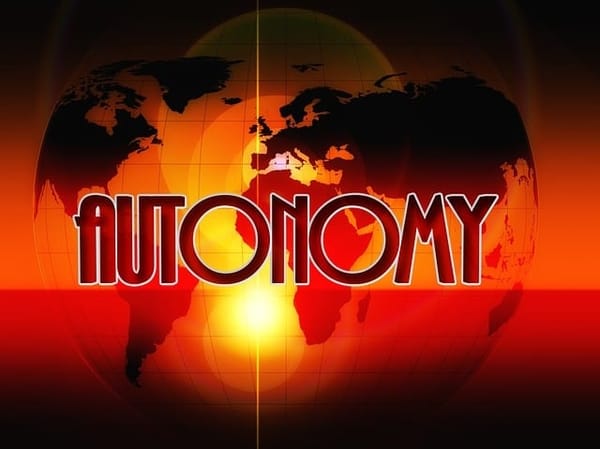Artificial Intelligence (AI) is no longer the stuff of science fiction; it's a reality that's reshaping our world. From self-driving cars to AI-generated images, the rapid advancement of AI technologies is both exciting and alarming. While AI holds the promise of revolutionizing industries and enhancing human capabilities, it also poses significant risks that we must address. In this article, we'll explore the top five dangers associated with AI, shedding light on the potential threats that could impact our society.
Key Takeaways:
- AI systems can pose significant risks to privacy, security, and human values.
- The rapid advancement of AI technologies requires proactive measures to mitigate potential dangers.
- Understanding AI's impact on job loss, legal regulations, and societal infrastructure is crucial for a safe AI-driven future.
1. The Threat of AI Bias
AI systems are only as good as the data they're trained on. When AI models are developed using biased training data, they can perpetuate and even amplify existing prejudices. This bias in AI decision-making can lead to unfair treatment in areas like hiring, lending, and law enforcement. For instance, biased algorithms in hiring processes can result in discrimination against certain groups, raising concerns about fairness and equality.
AI researchers are actively working to address these biases, but the challenge is significant. The lack of transparency in AI algorithms makes it difficult to identify and correct biases. As AI continues to play a larger role in decision-making, ensuring that these systems are fair and unbiased is crucial to prevent significant harm to individuals and society.
2. Privacy Concerns and Data Exploitation
AI's ability to collect and analyze vast amounts of personal data raises serious privacy concerns. AI tools can track and profile individuals, often without their knowledge or consent. This data can be exploited by bad actors or even legitimate organizations, leading to potential misuse and abuse. The lack of clear legal regulations around data collection and usage further exacerbates these concerns.
In a world where data is the new oil, the potential for AI to exploit personal data is a significant risk. Organizations must implement robust data protection measures and ensure transparency in how data is collected and used. Without proper safeguards, AI-driven data exploitation could undermine trust and pose a threat to individual privacy and security.

3. Security Risks and Autonomous Weapons
AI technologies have the potential to revolutionize national security, but they also pose significant risks. Autonomous weapons, powered by AI, could be used in warfare, raising ethical and security challenges. These weapons could operate without human intervention, making decisions that could lead to unintended consequences or even nuclear war.
The development of AI-driven autonomous weapons is a double-edged sword. While they could enhance military capabilities, they also pose existential risks to humanity. The lack of international regulations governing the use of AI in warfare highlights the urgent need for global cooperation to prevent the misuse of AI technologies in ways that could harm humans.
4. Job Loss and Economic Disruption
AI automation is transforming industries, leading to concerns about job loss and economic disruption. As AI systems become more capable, they can perform tasks traditionally done by humans, from manufacturing to customer service. This shift could lead to significant job displacement, affecting millions of workers worldwide.
While AI-driven automation can increase efficiency and productivity, it also raises questions about the future of work. Organizations and governments must proactively address the potential economic impact of AI by investing in retraining programs and creating new job opportunities. Failing to do so could result in widespread unemployment and social unrest.
5. The Challenge of AI Governance and Regulation
The rapid advancement of AI technologies has outpaced the development of legal regulations and governance frameworks. This lack of oversight poses significant risks, as AI systems can be used in ways that are harmful or unethical. The unclear legal responsibility for AI-generated works and decisions further complicates the issue.
To ensure the safe and ethical use of AI, it is crucial to establish comprehensive legal regulations and governance structures. This includes defining the legal responsibility for AI actions, ensuring transparency in AI decision-making, and protecting human values. Without proper governance, the potential dangers of AI could outweigh its benefits.

6. The Risk of Sentient AI
The idea of sentient AI, or machines that possess human-like consciousness, is a topic of much debate and speculation. While current AI systems are far from achieving true sentience, the possibility raises significant ethical and existential risks. Sentient AI could challenge our understanding of human intelligence and raise questions about the rights and responsibilities of AI entities.
AI researchers are exploring the implications of sentient AI, but the potential risks are profound. If AI were to become sentient, it could pose a threat to human autonomy and decision-making. Addressing these risks requires careful consideration of the ethical and philosophical implications of creating machines that can think and feel like humans.

7. The Spread of Misinformation and Fake News
AI-generated content, such as deepfakes and fake news, poses a significant threat to democratic processes and societal trust. AI tools can create realistic but false information, making it difficult for individuals to discern fact from fiction. This can lead to the spread of misinformation, influencing public opinion and undermining democratic institutions.
The challenge of combating AI-generated misinformation requires a multi-faceted approach. This includes developing AI systems that can detect and counter fake news, as well as promoting media literacy and critical thinking skills among the public. Without these measures, the spread of misinformation could have serious consequences for society.
8. The Impact on Human-Computer Interaction
AI technologies are transforming the way humans interact with computers, raising questions about the future of human-computer interaction. AI assistants, such as virtual agents and chatbots, are becoming increasingly common, offering new ways for individuals to engage with technology. However, this shift also poses challenges related to privacy, security, and human oversight.
Ensuring that AI-driven human-computer interaction is safe and ethical requires careful consideration of the potential risks. This includes addressing issues related to data privacy, ensuring transparency in AI decision-making, and maintaining human oversight in AI interactions. By addressing these challenges, we can create a future where AI enhances, rather than undermines, human-computer interaction.
9. The Potential for AI to Harm Humanity
AI systems have the potential to cause significant harm to humanity if not properly managed. From biased algorithms to autonomous weapons, the risks associated with AI are diverse and complex. Addressing these risks requires a proactive approach, including the development of ethical guidelines and governance frameworks.
The potential for AI to harm humanity underscores the importance of responsible AI development. This includes ensuring that AI systems are designed with human values in mind, and that they are subject to rigorous testing and oversight. By taking these steps, we can mitigate the risks associated with AI and ensure that it benefits, rather than harms, humanity.
10. The Role of AI in Shaping the Future
AI technologies are shaping the future in ways that were once unimaginable. From transforming industries to redefining human capabilities, AI is driving significant change. However, this transformation also poses potential risks that must be addressed to ensure a safe and ethical AI-driven future.
The role of AI in shaping the future requires careful consideration of the potential risks and benefits. This includes addressing issues related to job loss, privacy, security, and governance. By taking a proactive approach to AI development, we can harness its potential while mitigating the risks it poses to society.

11. The Ethical Implications of AI Development
The development of AI technologies raises significant ethical questions. From the use of AI in surveillance to the creation of autonomous weapons, the ethical implications of AI are profound. Addressing these issues requires a comprehensive approach that considers the potential risks and benefits of AI development.
The ethical implications of AI development highlight the need for responsible AI governance. This includes establishing ethical guidelines for AI use, ensuring transparency in AI decision-making, and protecting human values. By addressing these ethical challenges, we can ensure that AI is developed in a way that benefits society.
The Influence of AI on Democratic Processes
Artificial Intelligence is not just a tool; it's a double-edged sword that can sway democratic processes. AI systems, with their ability to analyze vast amounts of data, can be used to influence public opinion through social media platforms. This raises concerns about the spread of misinformation and fake news, which can manipulate voter perceptions and decisions. AI-generated images and content can be used by malicious actors to create false narratives, posing significant risks to the integrity of elections. The rapid advancement of AI technologies necessitates proactive measures to safeguard democratic values and ensure fair electoral processes.
Moreover, the lack of clear legal regulations around AI tools and their use in political campaigns adds to the complexity. AI researchers and tech leaders are calling for more stringent oversight to prevent AI from being exploited to undermine democratic institutions. The potential dangers of AI in this context are not just theoretical; they are real and present. As AI continues to evolve, it is crucial to develop robust frameworks that address these challenges, ensuring that AI-driven future developments do not harm humanity or erode the foundations of democracy.
The Role of AI in Shaping Human Values
AI technologies are not just tools; they are shaping human values and societal norms in profound ways. As AI models become more integrated into daily life, they influence decision-making processes, from job recruitment to criminal justice. Biased algorithms can perpetuate existing inequalities, leading to significant harm if not addressed. AI safety and ethical AI development are paramount to ensure these systems reflect and uphold human values rather than distort them.
AI researchers and developers must prioritize transparency and accountability in AI systems to prevent significant risks. Human oversight is essential to ensure AI decision-making aligns with societal values and ethical standards. The potential dangers of AI-driven future scenarios, such as autonomous weapons or AI-generated works, highlight the need for a collective effort to guide AI development responsibly. By fostering a dialogue between AI developers, policymakers, and the public, we can navigate the challenges of AI regulation and ensure that AI serves humanity positively.

12. The Challenge of Ensuring AI Safety
Ensuring the safety of AI systems is a critical challenge that must be addressed to prevent significant harm. From biased algorithms to autonomous weapons, the risks associated with AI are diverse and complex. Addressing these risks requires a proactive approach, including the development of safety guidelines and governance frameworks.
The challenge of ensuring AI safety underscores the importance of responsible AI development. This includes ensuring that AI systems are designed with safety in mind, and that they are subject to rigorous testing and oversight. By taking these steps, we can mitigate the risks associated with AI and ensure that it benefits, rather than harms, humanity.
13. The Impact of AI on Human Judgment
AI systems are increasingly being used to make decisions that were once the domain of human judgment. From hiring to lending, AI is transforming decision-making processes. However, this shift also raises concerns about the potential for AI to undermine human judgment and autonomy.
The impact of AI on human judgment requires careful consideration of the potential risks and benefits. This includes addressing issues related to bias, transparency, and accountability in AI decision-making. By taking a proactive approach to AI development, we can ensure that AI enhances, rather than undermines, human judgment.
14. The Role of AI in National Security
AI technologies have the potential to revolutionize national security, but they also pose significant risks. From autonomous weapons to surveillance systems, AI is transforming the way nations protect themselves. However, this transformation also raises ethical and security challenges that must be addressed.
The role of AI in national security requires careful consideration of the potential risks and benefits. This includes addressing issues related to the use of AI in warfare, ensuring transparency in AI decision-making, and protecting human values. By taking a proactive approach to AI development, we can harness its potential while mitigating the risks it poses to national security.
15. The Challenge of AI Governance
The rapid advancement of AI technologies has outpaced the development of legal regulations and governance frameworks. This lack of oversight poses significant risks, as AI systems can be used in ways that are harmful or unethical. The unclear legal responsibility for AI-generated works and decisions further complicates the issue.
To ensure the safe and ethical use of AI, it is crucial to establish comprehensive legal regulations and governance structures. This includes defining the legal responsibility for AI actions, ensuring transparency in AI decision-making, and protecting human values. Without proper governance, the potential dangers of AI could outweigh its benefits.
16. The Impact of AI on Societal Infrastructure
AI technologies are transforming societal infrastructure in ways that were once unimaginable. From smart cities to autonomous vehicles, AI is driving significant change. However, this transformation also poses potential risks that must be addressed to ensure a safe and ethical AI-driven future.
The impact of AI on societal infrastructure requires careful consideration of the potential risks and benefits. This includes addressing issues related to privacy, security, and governance. By taking a proactive approach to AI development, we can harness its potential while mitigating the risks it poses to societal infrastructure.

17. The Role of AI in Shaping Human Values
AI technologies are shaping human values in ways that were once unimaginable. From transforming industries to redefining human capabilities, AI is driving significant change. However, this transformation also poses potential risks that must be addressed to ensure a safe and ethical AI-driven future.
The role of AI in shaping human values requires careful consideration of the potential risks and benefits. This includes addressing issues related to job loss, privacy, security, and governance. By taking a proactive approach to AI development, we can harness its potential while mitigating the risks it poses to human values.
18. The Challenge of AI Regulation
The rapid advancement of AI technologies has outpaced the development of legal regulations and governance frameworks. This lack of oversight poses significant risks, as AI systems can be used in ways that are harmful or unethical. The unclear legal responsibility for AI-generated works and decisions further complicates the issue.
To ensure the safe and ethical use of AI, it is crucial to establish comprehensive legal regulations and governance structures. This includes defining the legal responsibility for AI actions, ensuring transparency in AI decision-making, and protecting human values. Without proper governance, the potential dangers of AI could outweigh its benefits.

19. The Impact of AI on Human Labor
AI automation is transforming industries, leading to concerns about job loss and economic disruption. As AI systems become more capable, they can perform tasks traditionally done by humans, from manufacturing to customer service. This shift could lead to significant job displacement, affecting millions of workers worldwide.
While AI-driven automation can increase efficiency and productivity, it also raises questions about the future of work. Organizations and governments must proactively address the potential economic impact of AI by investing in retraining programs and creating new job opportunities. Failing to do so could result in widespread unemployment and social unrest.
20. The Role of AI in Shaping the Future
AI technologies are shaping the future in ways that were once unimaginable. From transforming industries to redefining human capabilities, AI is driving significant change. However, this transformation also poses potential risks that must be addressed to ensure a safe and ethical AI-driven future.
The role of AI in shaping the future requires careful consideration of the potential risks and benefits. This includes addressing issues related to job loss, privacy, security, and governance. By taking a proactive approach to AI development, we can harness its potential while mitigating the risks it poses to society.

Summary
Artificial Intelligence is a double-edged sword, offering both incredible opportunities and significant risks. From biased algorithms to autonomous weapons, the dangers associated with AI are diverse and complex. Addressing these risks requires a proactive approach, including the development of ethical guidelines, governance frameworks, and safety measures. By understanding and mitigating the potential dangers of AI, we can ensure that it benefits, rather than harms, humanity.

Q1. What are the top dangers associated with artificial intelligence?
The top dangers associated with AI include bias in AI systems, privacy concerns, security risks, job loss, and the lack of governance and regulation. These risks can lead to significant harm if not properly managed.
Q2. How can we mitigate the risks associated with AI?
Mitigating the risks associated with AI requires a proactive approach, including the development of ethical guidelines, governance frameworks, and safety measures. This includes ensuring transparency in AI decision-making, protecting human values, and addressing issues related to bias, privacy, and security.
Q3. What role does AI play in shaping the future?
AI is transforming industries and redefining human capabilities, driving significant change in society. However, this transformation also poses potential risks that must be addressed to ensure a safe and ethical AI-driven future. By taking a proactive approach to AI development, we can harness its potential while mitigating the risks it poses to society.
Your Friend,
Wade









